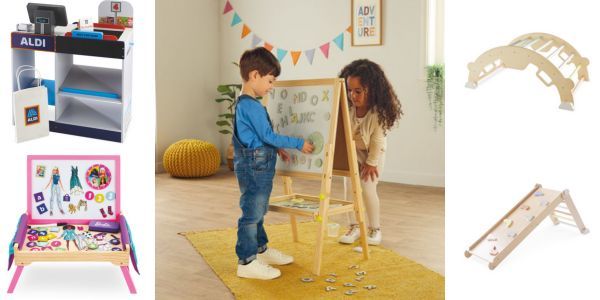

This has been a hot topic for debate in the press and social media in recent years, as society has become ever more advanced and dependant on technology…
Tablets – When Should a Child Have One?
I did a survey of our private Facebook group to find out what age the majority feel is appropriate for a child to be introduced to devices; here are the results!
6-12 months: 1
1-2 Years: 31
2-3 Years: 44
3-4 Years: 41
4-5 Years: 12
5-6 Years: 5
6-7 Years: 4
7-8 Years: 5
8-9 Years: 8
9-10 Years: 68
16 + Years: 9
We also had some broader responses;
Primary School: 118
Secondary School: 89
Once they can buy their own (hehehe, I like this one!): 5
Once they’re a teenager: 8
Primary School with appropriate child filters: 14
Once they’re mature enough: 25
Conclusion;
We had a very mixed response from our parents. In terms of quantitative answers, 9-10 years was the most popular response by far, followed by 2-3 years and 3-4 years. In terms of our qualitative answers, Primary School came out on top – if these two were to be put together, one would safely assume that this would be year 5/6 of Primary School.
Positives vs. Negatives…
There are lots of good and bad aspects when it comes to introducing children to devices.
It could be argued that the potential reduction in physical activity and exercise due to sitting and being sedentary on tablet could be detrimental to a child’s current and long term health.
But on the flip side, parental monitoring of screen time, and making sure your children continue to be physically active could mitigate this.
There is a reduction in ‘real’ play and social interaction in children who particularly love their tablet, meaning less time is spent on developing problem solving skills, developing their motor skills, and on honing social skills.
This is definitely a valid point and something to consider. It could be balanced by perhaps limiting tablet time, and ensuring that children don’t reduce their ‘real’ play time.
Some specialists worry that there is a low incentive to develop patience and acquire skills through learning in children who become used to their tablet – ‘real life’ interaction encourages these skills through persistence, whilst tablets provide instant gratification.
As above, another valid point, which again could be balanced by limiting tablet time to ensure that children don’t lose out on ‘hands on’ learning and interaction.
There isn’t any evidence to suggest that moderate use poses any risks, but sleep can be affected due to the type of light emitted by tablets and devices.
I can personally vouch for this, being someone who is probably (definitely) hooked on her smartphone… this could be mitigated by leaving a reasonable time period between last use, and going to bed.
Finally… Steve Jobs, the inventor of the Apple iPad, didn’t let his own children have tablets! This speaks for itself.
However, some argue that technology does have a place in our homes and in our children’s education. They’re great for differently able children who may struggle to communicate, or be constrained by their conditions.
There are also lots of very good, educationally developed apps that can complement a child’s education nicely.
Is supervision and guided, educational use a good middle ground? Personally, I think so.
Conclusion…
if you want to get your young child a tablet, then fair play, it is fundamentally your choice. However, it’s best to be fully informed so that you can make an educated choice.
What do YOU think is the right age to offer a child a tablet/device? Tell us in the comments!
Love from Katie. Xx
Join the fun at our Facebook group – Bump, Baby and You.
Follow us for updates on Instagram – BumpBabyYou.
Tweet us – Bump, Baby and You.
You can follow my personal account – @KatieAtBBY


.png)







